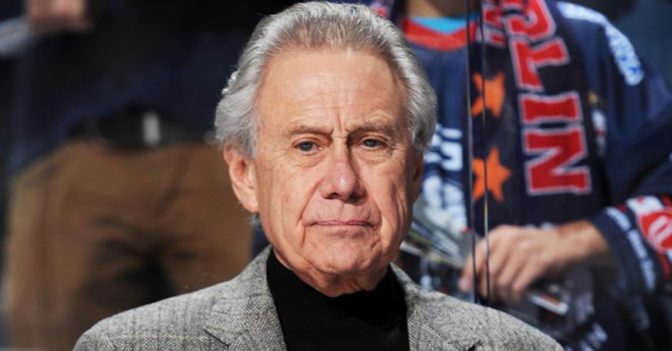Exclusive: Coachella Promoter Donated to Anti-Pot Groups

The promoters of the annual Coachella music festival, Anschutz Entertainment Group (AEG), recently announced that cannabis use would not be allowed at the event this April, even though recreational marijuana was legalized in California in 2016 and commercial sales began Jan. 1. The city of Indio, where the festival is held, has banned new pot businesses, but Coachella is on private property. So what gives?
The event’s promoter made the call. “NO Drugs or Drug Paraphernalia, Marijuana, Marijuana products will be allowed,” the Coachella website warns. That’s the rule for camping at Coachella as well.
Anschutz’s History of Contributions to Antidrug Groups
While Coachella’s marijuana ban is standard festival policy, it’s not widely known that AEG founder Philip Anschutz’s private family foundation has donated thousands of dollars to antidrug groups over the last few years, including Kevin Sabet’s Sam Inc. (Smart Approaches to Marijuana) and Smart Colorado.

The Anschutz Foundation’s 2016 tax return.
According to its tax returns, in 2016, the Anschutz Foundation donated $50,000 to SAM Inc., and another $110,000 to its partner organization, Smart Colorado. It gave another $50,000 to Smart Colorado in 2015. The goal was to counter the impact of Amendment 64, the recreational-marijuana legalization initiative the state’s voters passed in 2012.

Proof of Philip Anschutz’s $200 donation to Coloradans Against Legal Marijuana in 2000
This was not the first time Anschutz (pictured above) has funded antidrug groups. In 2000, when the Amendment 20 medical-marijuana initiative was on the Colorado ballot, he made a personal donation of $200 to Coloradans Against Legalizing Marijuana.
Anschutz’s Contributions to CeDAR Drug Treatment Center in Colorado
Also in 2000, the Anschutz Foundation gave the University of Colorado $25 million to build a medical complex in Aurora. The Anschutz Medical Campus is home to the Center for Dependency, Addiction and Rehabilitation (CeDAR). The foundation put up another $3 million for the initial endowment and capital for CeDAR, and continues to be a major donor.

Ben Cort
From 2013-2017, SAM supporter Ben Cort worked at CeDAR. In 2013, Addictionpro.com reported: “Ben Cort started at CeDAR in February, just a few months after having coordinated the campaign against Colorado’s marijuana-legalization initiative that voters approved in November. Cort remains involved in the marijuana policy debate, having become a board member for the Project SAM (Smart Approaches to Marijuana) national organization.”
Cort has worked with SAM for several years and is a director of SAM Action, Sabet’s 501(c)(4) political-nonprofit group. In 2014, he attended a SAM policy summit to strategize against legalization measures in Oregon and Alaska. Cort also traveled to Alaska in 2014 to campaign against the legalization effort there. He left CeDAR last January, but continues to work with Sabet and other legalization opponents.

Christian Hopfer
Also on the campus is Professor Christian Hopfer, a psychiatrist who’s leading a $5.5 million twins study funded by the National Institute on Drug Abuse. It’s comparing twins in Colorado, where pot is legal, with twins in Minnesota, where it’s not. “Some people may benefit,” Hopfer predicts. “But for a subset of people, we suspect there will be adverse consequences.”
In 2013, Hopfer warned that marijuana could damage the brain. “There are a lot of studies showing that there’s an increased risk of severe mental illness,” he stated. “It’s not a big risk, but it does appear that in some vulnerable people marijuana can cause a real, serious mental illness, like a psychotic condition that persists.»
Anschutz Has Actually Shown Support for Harm Reduction
The Anschutz Foundation has assets of more than $1 billion; it hands out millions of dollars every year to Colorado-based nonprofits. In contrast to its support for SAM, in 2016, the foundation gave $5,000 to the Harm Reduction Action Center in Denver, which provides services like syringe exchange for people who are homeless or otherwise at risk. Imagine what HARC could have done with the $110,000 that went to Sabet’s groups during the same funding cycle.
Private foundations are basically nonprofits with one sole or primary funder, like the family foundations that underwrite shows on PBS, or drug-policy and criminal-justice-reform efforts. As a private foundation, the Anschutz Foundation can’t engage in any political activity, nor can it make any donations to a 501(c)(4) or political-action committee.
Anschutz’s Conservative Background and Media Holdings
The 78-year-old Anschutz, who lives in Denver, had a net worth of $10.3 billion as of 2015. He owns the right-wing publications Washington Examiner and The Weekly Standard. In the past, he and his foundation have made donations to organizations with anti-LGBT agendas, such as the Family Research Council and Alliance for Defending Freedom. But Anschutz now says, “We’ve immediately ceased all contributions to such groups.”
That’s progress. Now it’s time to pressure Anschutz into curtailing his support for anti-marijuana groups like SAM. If you go to Coachella, a small part of what you pay for a ticket will end up in the pocket of these groups, some of whom tried to stop California’s Prop 64 and Colorado’s Amendment 64 from passing. They may have lost those battles, but at Coachella, the drug war goes on.
If you enjoyed this Freedom Leaf article, subscribe to the magazine today!

